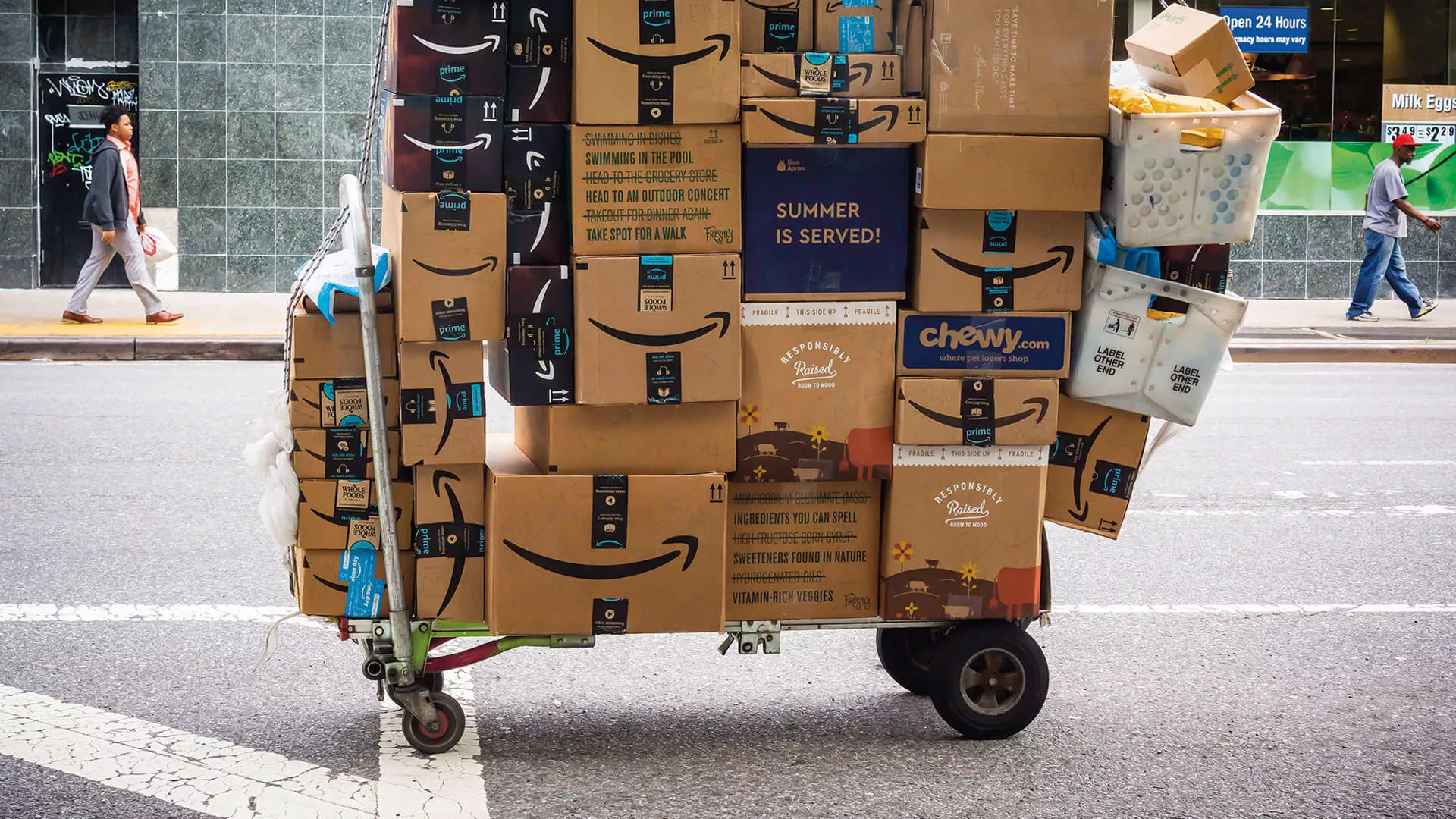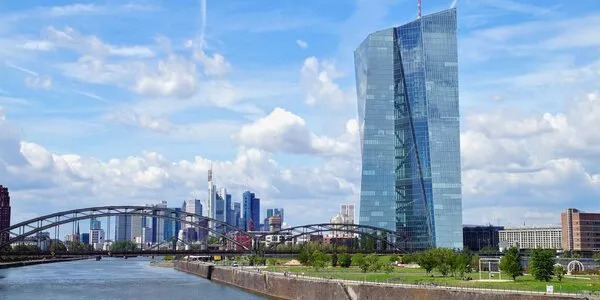
Shopping, an alliance of the real and the virtual

Vivien Cheung
is the Director of Market Development in China at Yext, an American company specialising in Digital Knowledge Management*. She's based in Shanghai.
(*) Digital Knowledge Management is the management of information available online about companies.

Philippe Moati
is Professor of Economics at the Université Paris-Diderot and co-founder of OBSoCo, the Observatoire société et consommation, created in Paris to analyse changes in consumer shopping patterns.
How are shopping patterns and consumer expectations changing?
Vivien Cheung : In China, the specific factor now defining shopping is the decisive role of the smartphone. The country has 800 million Internet users*, 98% of whom access the Internet via a mobile device. And, with only 58% of the Chinese population connected, the potential for Internet development is enormous. The growth of the mobile Internet is shaping and changing consumer behaviours. Digital payment has become the focus, whether it's paying for jianbing (traditional Chinese food like pancakes) at a street vendor, buying groceries online, or sharing a meal bill with friends on the WeChat social network. By 2019, 86% of China's population is expected to use mobile payments, the highest penetration rate in the world. For many Chinese, the mobile phone is their first computer. And social networks like WeChat (more than a billion active daily users), Douyin (short video app) or Xiaohongshu (life style app integrated with the Taobao online store) have become catalysts for commerce.
Looking to Western markets, what major developments will shape future shopping patterns?
Philippe Moati : The key topic for the future is the unsustainable nature of our consumer model from an environmental point of view. Currently, mature consumer societies are entering “Season 3". After the “Season 1”, characterised by post- WW2 economic growth in Europe, with the democratisation of access to comfort, “Season 2”, based on the stimulation of the desire to consume by focusing on emotional stimuli, is reaching saturation. The hypermarket crisis, the decline in use of shopping malls and clothing stores are all signs of trouble to come.
(*) 1,397 billion inhabitants in 2019.
How is this “Season 3” of consumer society to be characterised ?
P.M.: It translates into a change in the relation to consumerism, fuelled by two engines: the environment and mistrust. A critical posture is gradually spreading through consumers, and “the most informed” consumers are changing their behaviour. This development is obvious in the food industry, with the growth of small, local and organic producers. The feeling of being “manipulated” is pervasive. 91% of French people denounce planned obsolescence1, for example, believing that their purchasing power is being deliberately squandered. At ObSoCo, our more optimistic hypothesis is that “Season 3” will promote “good consumerism”: environmentally sustainable, offering clear guarantees and giving the individual the means to live well, whilst striving towards a “good life”2.
In this context, what will be the impact of e-commerce on changes to consumerism ?
P.M.: The e-commerce revolution is already 20 years old, and future change will come from the deployment of artificial intelligence (AI) and the so-called "Internet of Things". One can imagine that these technologies might restore some effectiveness to the endangered “Season 2” model. This is the case with applications that promise the immediate satisfaction of our slightest desires.
(1) An industrial strategy to program a limited lifetime into a non-consumable product, with the aim of increasing the frequency of replacement. - (2) The concept of “good life” is defined as the possession, pursuit or exercise of property (whether contemplation, wealth, wisdom or virtue).
In China, where e-commerce is very developed, what are the innovations to come and what will their influence reach the West ?
V.C.: Excellence in e-commerce is a major challenge for many companies in China. Whether it's integrated payment systems, real-time customer service or fast delivery, Chinese consumers expect a high degree of ease of use in online transactions. As more and more Chinese travel abroad, Western merchants are given the opportunity to offer them the shopping experience they have become accustomed to. Swiss company Global Blue, for example, introduced instant VAT refunds on Alipay and WeChat accounts in April 2019.
Chinese payment systems like Alipay and UnionPay are beginning to be accepted in the West. Some Western companies are undertaking promotions on Chinese apps like Dianping (online commerce) and Ctrip (online travel agency) to attract new customers. In doing so, they may contribute to an ever wider adoption of these Chinese services in the West.
“The boundaries between online and offline commerce are increasingly blurred.”
VIVIEN CHEUNG
Does the ongoing development of e-commerce mark the end of physical commerce ?
V.C.: Most retail sales are still offline. Physical stores and hypermarkets play an important role in omnichannel trade1 and are an essential part of new retail2. In the luxury sector, in particular, boutiques remain a place modelled around a very "offline" experience. The RoPo approach (Research online, Purchase offline) remains a dominant purchasing route. The boundaries between online and offline commerce are increasingly blurred. The urban supermarkets of Alibaba's Hema Fresh subsidiary serve as shipping centres for online orders delivered within 30 minutes to major cities. In turn, the data from these orders helps determine inventory in physical stores. Collaboration between virtual and physical stores offers enormous opportunities for mutual benefit.
P.M.: Indeed, the jury is still out: in the United States, e-commerce accounts for about 15% of consumption and 10% in France. Physical commerce has good days ahead, provided it extends its range of services, both in store and online. Because consumers do not distinguish between virtual and real in their interactions with brands. The physical store will have to be rethought as a link in a chain and be more polymorphic, with large showrooms, demonstration spaces, customer contact and advice points... The real risk for conventional distributors would be that consumer markets come under the umbrella of a small number of players, such as Amazon, Alibaba, even Google. Hence the urgency of exploring the various business models of “Season 3” of the consumer society.
(1) Omnichannel commerce refers to a practice of simultaneously using physical point-of-sale distribution and e-commerce. - (2) Developed by the Chinese e-commerce giant Alibaba, the new retail concept aims to eliminate the frontier between online and offline commerce, offering the customer a new and unified shopping experience.
Focus: Auchan's response to new consumer expectations
While large retailers are losing more and more customers each year, some retailers are relying on new concepts. This is the case for Auchan in Luxembourg, which in May 2019 opened a brand new store with the express aim of completely reworking the typical hypermarket shopping experience. Across the 12,000 square meters of this new generation store we can find fresh products “home-made” on site, but also a set of services that facilitate and improve the time spent in these spaces, generally considered too large and stressful by a majority of consumers. Concerts, restaurant, beauty centre, sports classes and activities for children at competitive prices... the brand is pursuing an ambition to restore the pleasure of going shopping.
Buying experience and brand engagement: new consumer expectations
Globalisation and digital growth have profoundly disrupted the relationship between customers and brands. On the form, above all. Today's consumers are particularly demanding and expect their shopping experience to be simple, efficient and fast. The purchase time needs to be shortened and the payment options multiplied. Because they have become "omnichannel", the consumer also wants to switch easily between website, app and store. As a result, improving collaboration between physical and virtual teams becomes a key issue for brands. But meeting expectations about form is not enough. At a time when the distrust of businesses is growing, the consumer is becoming a “consumer actor”. Better informed than ever, they favour genuine brands: 60% of consumers expect them to be more transparent. 75% of consumers want brands that are involved and contribute to their quality of life* by making commitments to health, solidarity and the environment... beyond just making and selling products. While Lacoste is mobilising to protect endangered animals, Coca-Cola is fighting homophobia in Brazil. And the new key to attracting and retaining consumers? A strong, connected identity that is based on solid values.
(*) Havas Meaningful brands, 2017.




